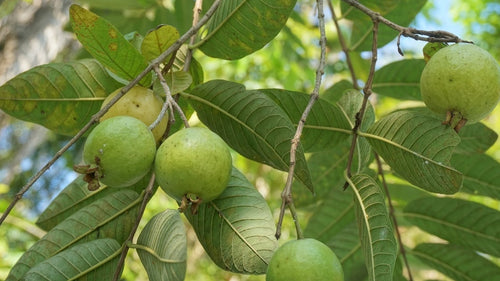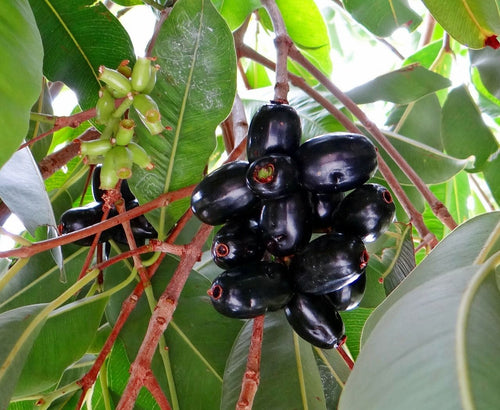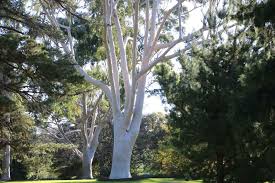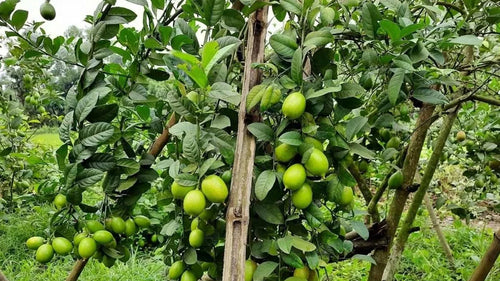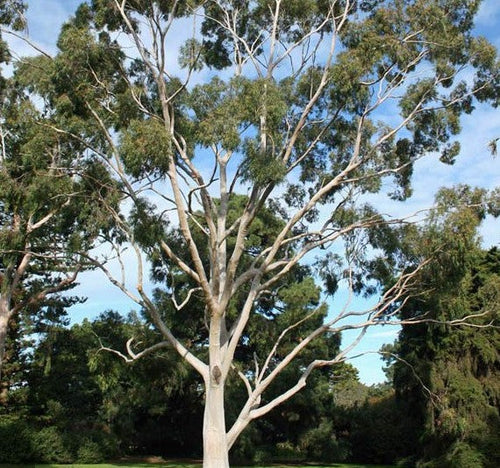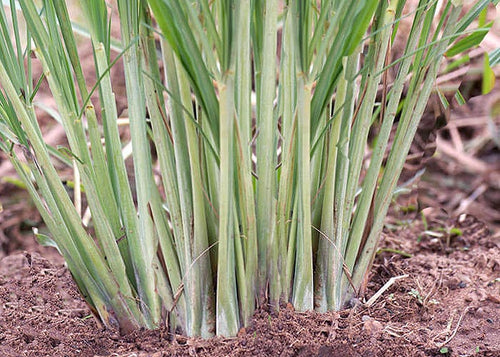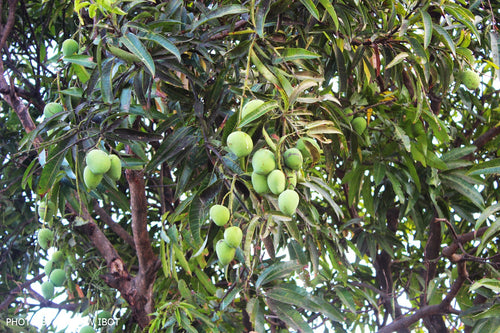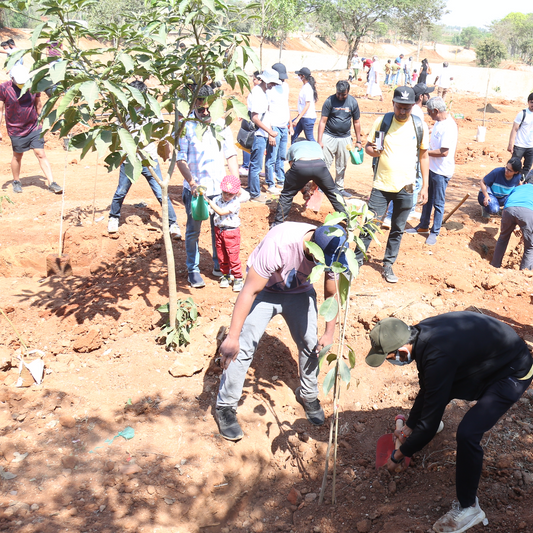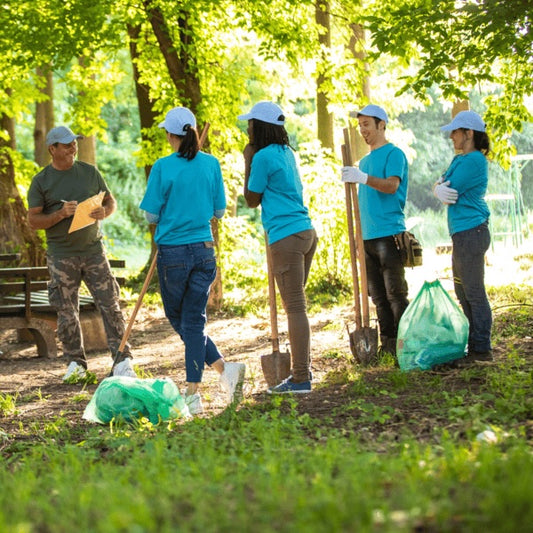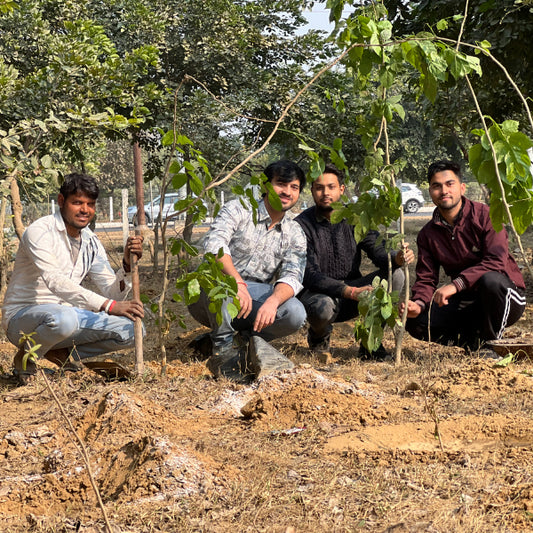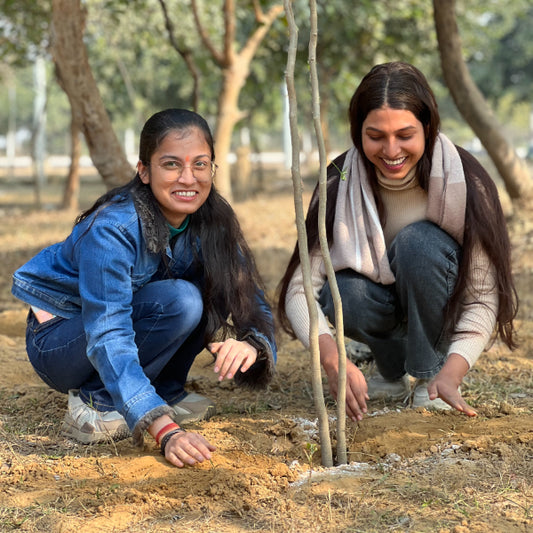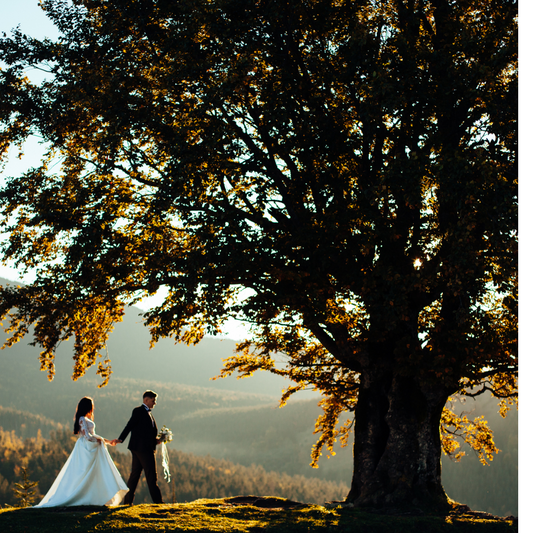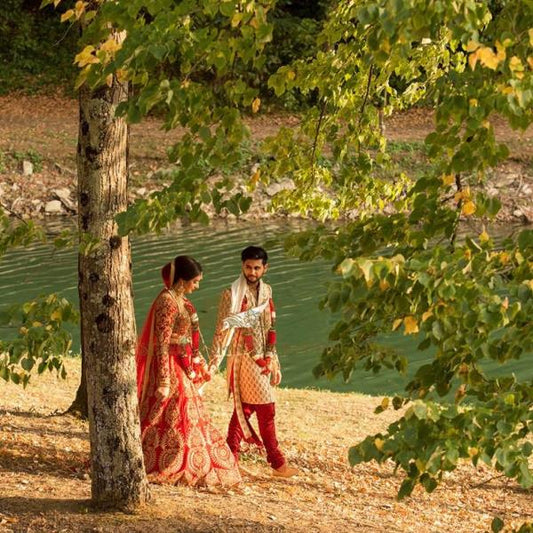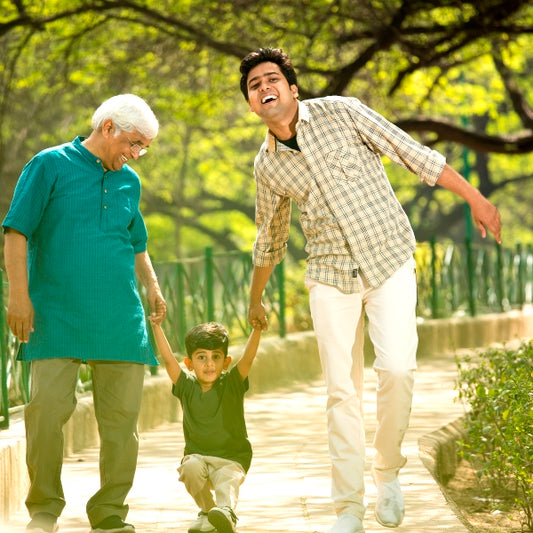Celebrating Vedh’s 2nd Year by Giving Back to Nature
On the occasion of her son Vedh's 2nd birthday, Jyotshna embarked on a heartfelt journey to support the environment through a meaningful tree plantati Read more
Plantation Site Gallery
Project Update 2
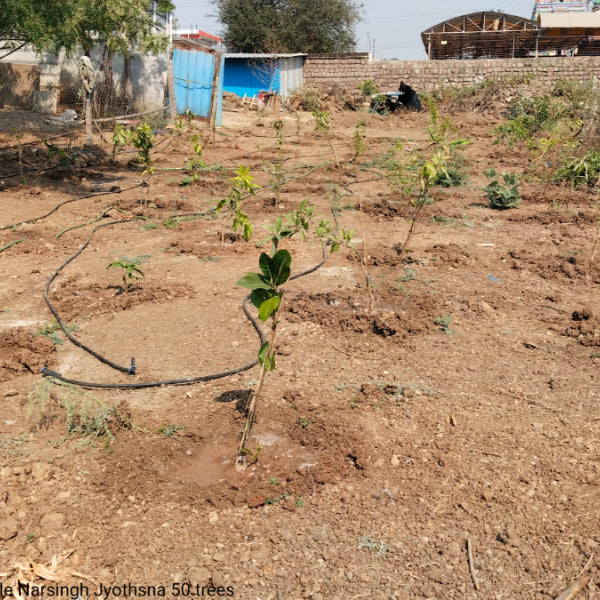

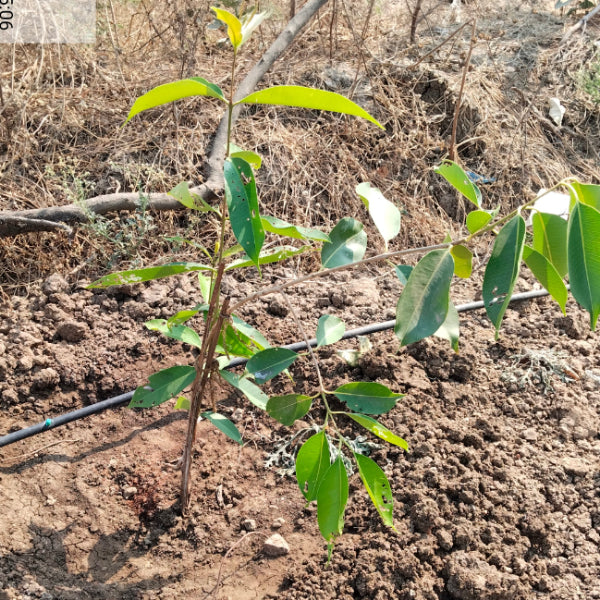
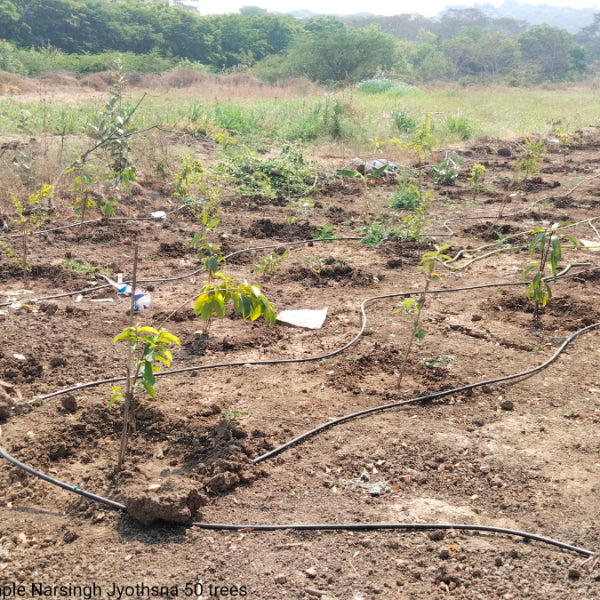
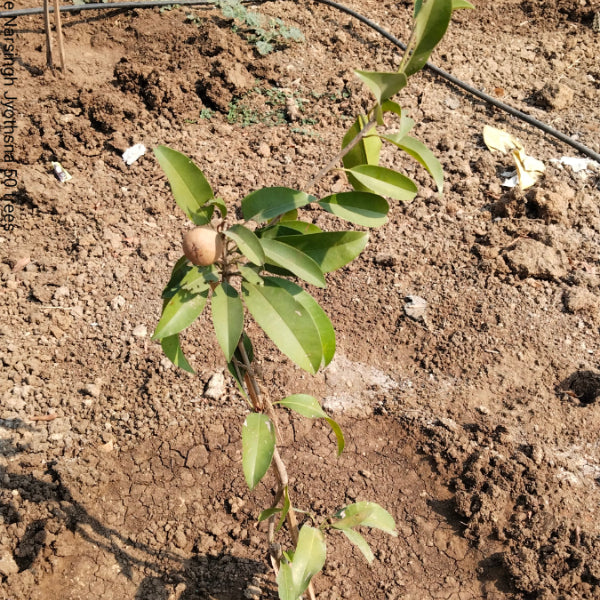
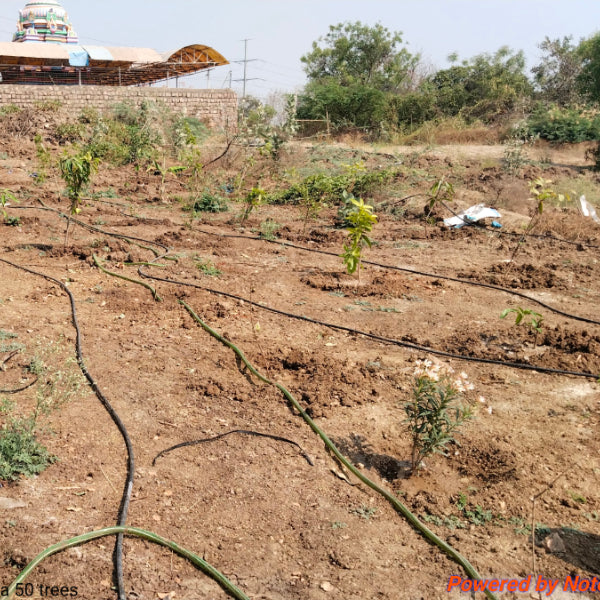
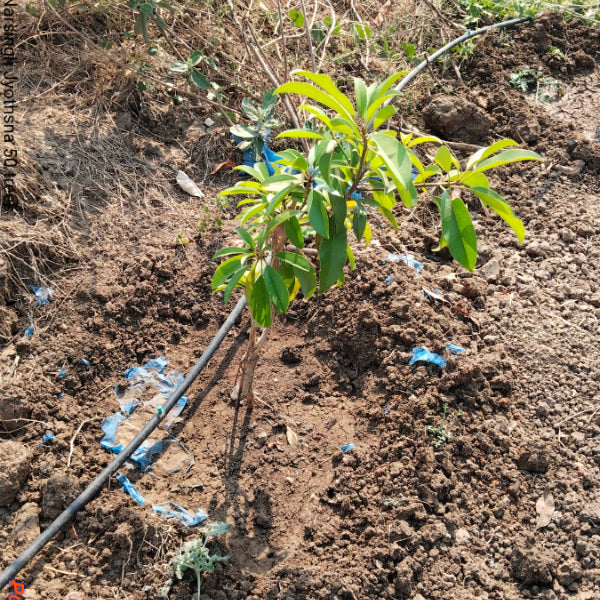
Project Update 1
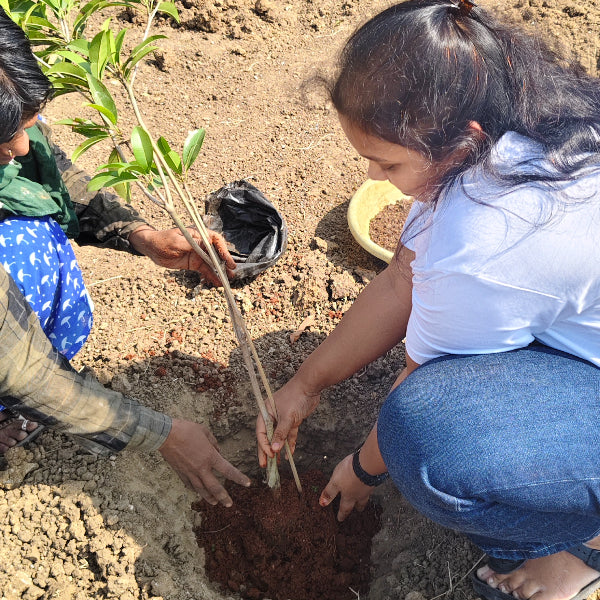
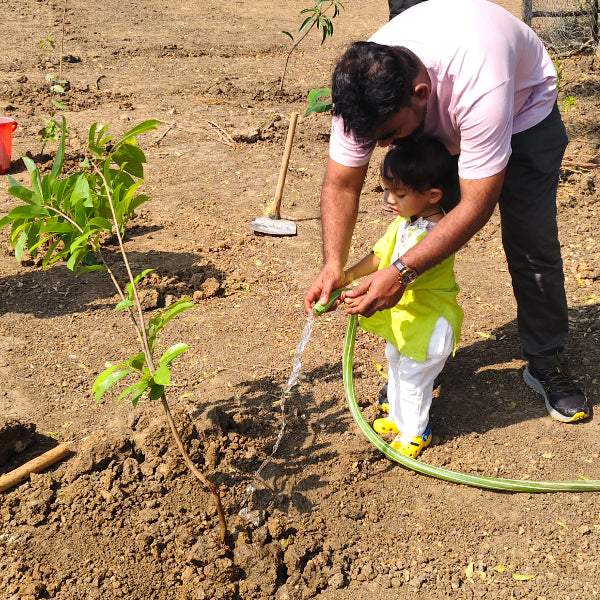

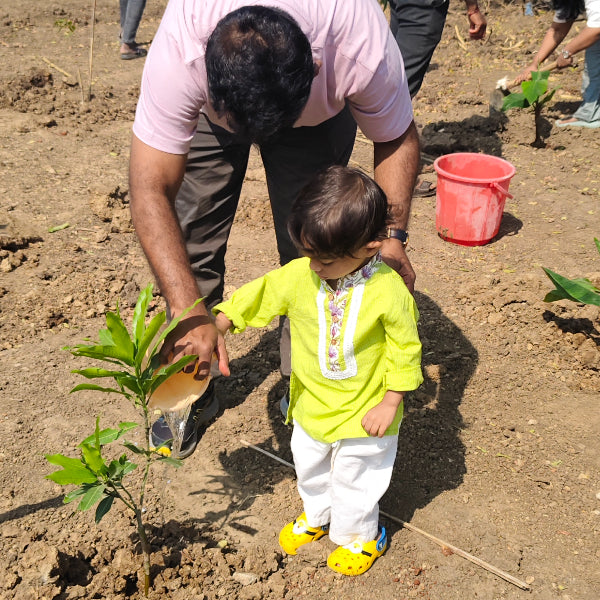

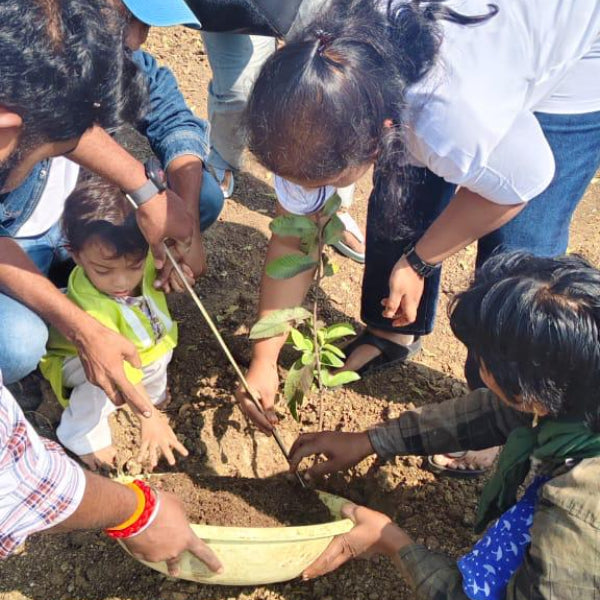
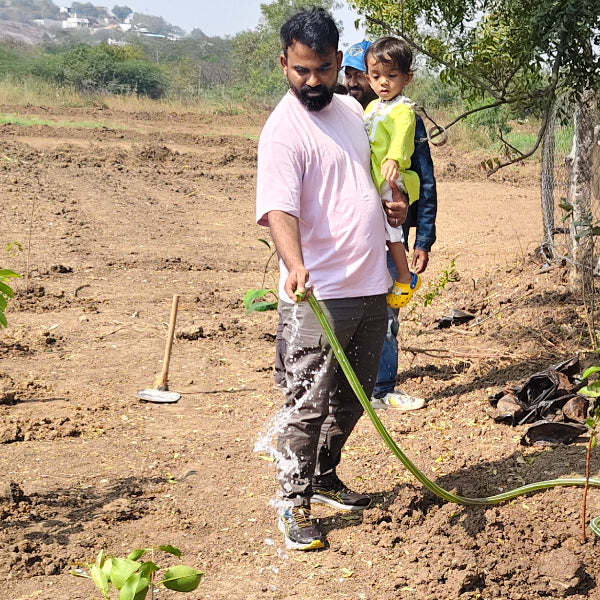
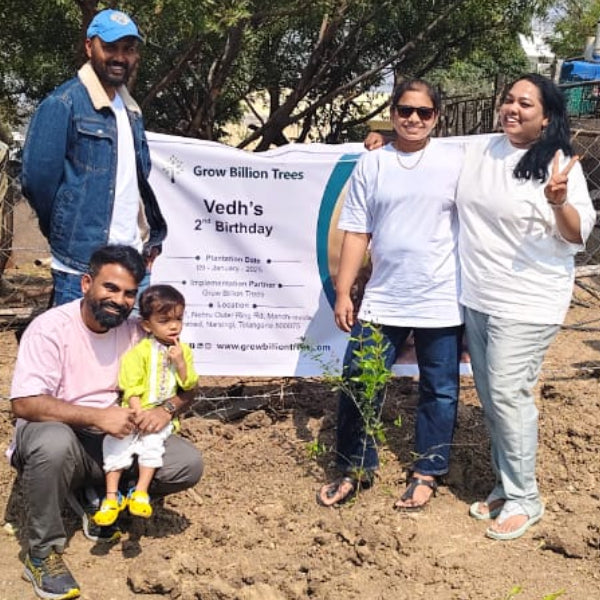
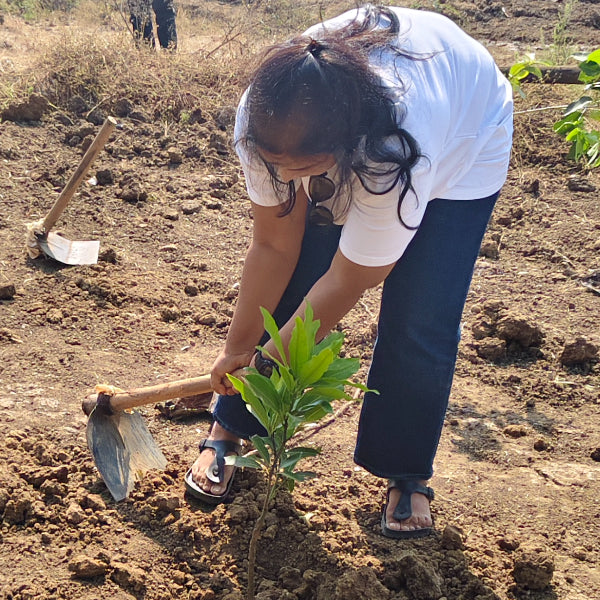
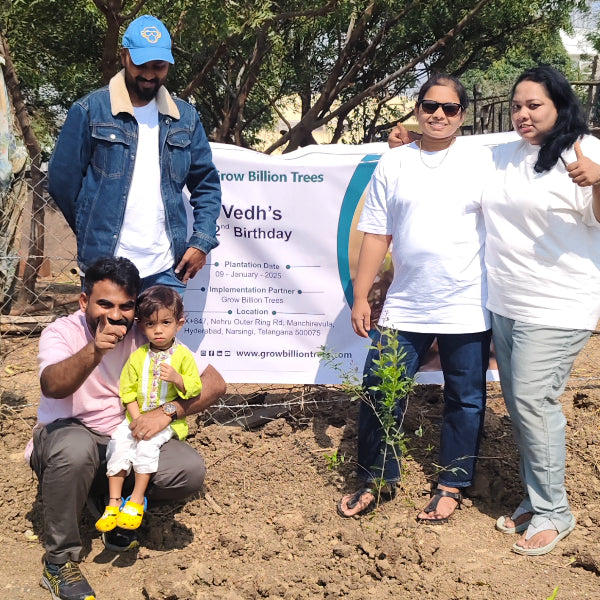
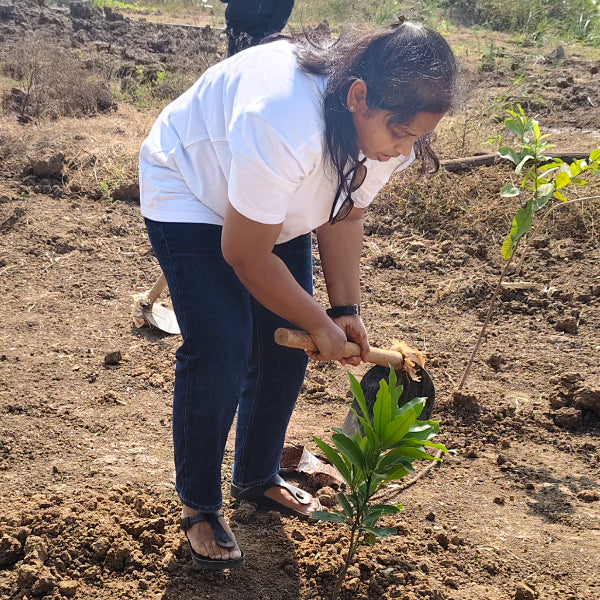
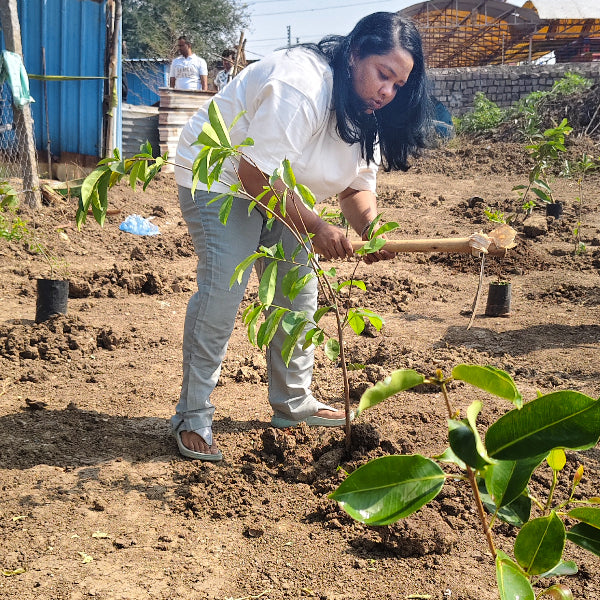
Digital Forest
Forest with 50 Trees planted
Celebrating Vedh’s 2nd Year by Giving Back to Nature
On the occasion of her son Vedh's 2nd birthday, Jyotshna embarked on a heartfelt journey to support the environment through a meaningful tree plantation initiative in the urban forest concept. This unique gesture intertwines the joy of celebration with the responsibility of environmental stewardship.
By planting trees, Jyotshna aims to foster a greener future while creating a lasting, positive impact on the planet. The initiative reflects her deep commitment to sustainability, offering a thoughtful and eco-friendly way to mark this special milestone in Vedh's life.
This birthday celebration is more than just a joyous event; it’s a legacy for Vedh and a gift to the world. Through this beautiful act of giving back to nature, Jyotshna inspires others to integrate environmental consciousness into their lives, proving that even small steps can contribute to a larger, greener tomorrow.
Vedh’s birthday is now etched not only in the hearts of loved ones but also in the soil that nurtures new life - a truly memorable and impactful way to celebrate life and growth.
Tree Plantation Date
9th January 2025
Plantation Location
98CX+654 Hyderabad, Telangana
Trees Planted
Total Count: 50 Trees
Species Name: Mango, Chiku, Jamun, Lemon, Guava, Pomegranate, Custard Apple, Banana
Forest Type: Urban Forest
Advantages Of Urban Forest
Environmental Impact
By planting trees in an urban forest, Jyotshna contributes to reducing air pollution and improving the overall air quality. The trees act as natural air purifiers, absorbing carbon dioxide and releasing oxygen, creating a healthier environment for future generations, including Vedh.
Climate Change Mitigation
The initiative supports the fight against climate change by sequestering carbon, reducing the urban heat island effect, and providing shade, which lowers energy consumption in cities. This thoughtful act leaves a positive ecological footprint on Vedh’s special day.
Enhanced Biodiversity
Urban forests create habitats for various species of birds, insects, and small mammals, fostering biodiversity. By planting trees, Jyotshna helps build a vibrant ecosystem that supports wildlife, making the environment more balanced and thriving.
A Sustainable Legacy for Vedh
Planting trees as part of an urban forest initiative symbolizes growth and longevity, creating a lasting memory for Vedh's 2nd birthday. This gift grows with him, standing as a testament to love and responsibility toward nature.
Improved Mental and Physical Health
Urban forests provide green spaces that enhance mental well-being and encourage physical activity for city residents. This initiative ensures that Vedh and others in the community benefit from the calming and rejuvenating effects of nature.
Community Engagement
The urban forest serves as a space for people to connect with nature and each other. Jyotshna’s initiative inspires others to participate in similar activities, promoting collective environmental consciousness and a stronger sense of community.
Teaching Vedh Values of Sustainability
By dedicating his birthday to an environmental cause, Jyotshna imparts an early lesson to Vedh about the importance of caring for nature. This initiative fosters a sense of environmental responsibility and awareness as part of his upbringing.
A Unique and Memorable Celebration
Unlike conventional birthday celebrations, this tree plantation initiative creates a unique and meaningful memory. It transforms a day of joy into a moment of giving back to the planet, making Vedh’s birthday truly special and impactful.
Activities During Tree Plantation
For her son Vedh’s 2nd birthday, Jyotshna organized a thoughtful tree plantation initiative in the urban forest concept. The site was meticulously prepared in advance, involving tasks such as clearing the land, digging pit holes, and ensuring the area was ready for planting. On the special day, Jyotshna and her family gathered at the site to plant the saplings, symbolizing growth and sustainability. They lovingly placed each sapling into the pre-prepared pits and watered them, marking the beginning of a greener legacy for Vedh. This meaningful activity combined celebration with environmental responsibility, making Vedh’s birthday an occasion of joy, love, and ecological stewardship.
Tree Plantation Purpose
Jyotshna’s urban forest tree plantation initiative for Vedh’s 2nd birthday contributes to several Sustainable Development Goals (SDGs), promoting environmental sustainability, community welfare, and economic growth.
1. SDG 3: Good Health and Well-Being
Trees improve air quality by absorbing pollutants and releasing oxygen, reducing the risks of respiratory and cardiovascular diseases. Green spaces created by urban forests promote mental well-being by providing a calming environment for relaxation and stress relief. Additionally, the shade and cooler temperatures in these areas encourage physical activity, contributing to overall health for Vedh, his family, and the community.
2. SDG 4: Quality Education (Indirect Impact)
Jyotshna’s initiative can serve as an educational experience, especially for young Vedh, teaching him the importance of environmental stewardship from an early age. The act of planting trees provides an opportunity to learn about ecosystems, climate change, and sustainability, fostering a sense of responsibility toward the planet.
3. SDG 6: Clean Water and Sanitation
Trees play a vital role in preserving water resources. They prevent soil erosion, improve groundwater recharge, and reduce surface water runoff. By planting trees in an urban forest, Jyotshna contributes to maintaining a sustainable water cycle and ensuring cleaner water for future generations.
4. SDG 7: Affordable and Clean Energy (Indirect Impact)
Urban forests help reduce energy consumption in cities by lowering temperatures and mitigating the urban heat island effect. This natural cooling reduces the reliance on air conditioning and energy-intensive systems, indirectly supporting clean and affordable energy use.
5. SDG 8: Decent Work and Economic Growth
The preparation and execution of the tree plantation initiative, such as clearing the land and digging pits, create employment opportunities for local workers. This promotes economic growth while aligning with sustainable development practices.
6. SDG 10: Reduced Inequalities (Indirect Impact)
Urban forests provide equal access to green spaces for people from all socio-economic backgrounds. They benefit everyone by improving air quality, reducing noise pollution, and creating healthier environments, bridging gaps in urban living conditions.
7. SDG 11: Sustainable Cities and Communities
By contributing to an urban forest, Jyotshna helps make cities more sustainable and livable. Urban forests enhance biodiversity, reduce noise pollution, lower city temperatures, and provide recreational spaces for communities. They also improve the aesthetic appeal of urban areas, fostering pride and a sense of belonging among residents.
8. SDG 12: Responsible Consumption and Production
The initiative reflects an eco-conscious approach to celebrations, avoiding wasteful practices and instead utilizing resources like land and water responsibly. By planting trees as a birthday gesture, Jyotshna sets an example of sustainable consumption.
9. SDG 13: Climate Action
Planting trees is one of the most effective ways to combat climate change. Trees absorb carbon dioxide, helping to reduce greenhouse gas emissions and mitigate global warming. Jyotshna’s initiative supports global efforts to address climate change while creating a greener future for Vedh and the community.
10. SDG 15: Life on Land
The tree plantation enhances biodiversity by creating habitats for various species of birds, insects, and other wildlife. It supports the conservation and restoration of ecosystems, strengthening the balance of life on land and contributing to sustainable development.
11. SDG 17: Partnerships for the Goals
Jyotshna’s partnership with Grow Billion Trees has been instrumental in achieving SDG 17: Partnerships for the Goals, by fostering collaboration to address global environmental challenges. Grow Billion Trees provided expert guidance, resources, and pre-preparation of the plantation site, ensuring the success of the initiative. This partnership enabled the efficient execution of tree planting in an urban forest concept, amplifying the impact of Jyotshna’s efforts. By leveraging their expertise, the collaboration not only ensured sustainable practices but also inspired collective action toward ecological restoration. Together, they demonstrated how partnerships can transform individual initiatives into impactful contributions toward global sustainability goals.
ESGs Achieved Through Urban Forest
Environmental (E)
The tree plantation initiative in the urban forest concept directly contributes to environmental sustainability by enhancing biodiversity, improving air quality, and mitigating climate change. By planting trees, Jyotshna helps sequester carbon dioxide, reduce the urban heat island effect, and restore natural ecosystems in urban spaces. This green effort not only supports cleaner air and water but also provides habitats for local wildlife, fostering ecological balance. The initiative demonstrates a proactive approach to environmental stewardship, setting a precedent for eco-friendly celebrations that leave a lasting positive impact on the planet.
Social (S)
This initiative strengthens social responsibility by fostering awareness and community involvement in sustainable practices. The act of planting trees with family reinforces the values of care and giving, creating a meaningful bond among participants. Additionally, urban forests provide shared green spaces that enhance the quality of life for local communities by offering areas for recreation, relaxation, and mental well-being. By involving her family in the process, Jyotshna promotes intergenerational learning and sets an example for others to celebrate special occasions in a socially impactful way.
Governance (G)
By partnering with Grow Billion Trees, Jyotshna aligns with best practices in environmental governance, ensuring that the tree plantation is carried out responsibly and sustainably. The pre-preparation of the site, including land clearing and pit digging, reflects a structured and well-managed approach to the initiative. This collaboration highlights the importance of transparency, accountability, and shared responsibility in achieving environmental goals. Through this initiative, Jyotshna exemplifies how individual actions, guided by robust governance and partnerships, can align with broader sustainability frameworks and goals.
Commitment by Grow Billion Trees
Grow Billion Trees is committed to driving sustainable plantation efforts, ensuring every initiative aligns with key environmental objectives and promotes long-term ecological balance. We focus on selecting native tree species that are well-adapted to local ecosystems, ensuring a higher survival rate and stronger environmental impact.
To maintain plant health and longevity, Grow Billion Trees emphasizes continuous maintenance and regular monitoring of the plantations. This approach helps ensure that each tree thrives, contributing effectively to both biodiversity and climate resilience.
Transparency is a core principle in our operations. Clients receive comprehensive reports, including geo-tagging of planted trees, survival rate updates, and ongoing progress reports. This level of openness allows clients to track the direct impact of their contributions, reinforcing trust and accountability.
Through our dedication to sustainable practices, Grow Billion Trees ensures that every plantation project leaves a lasting positive footprint on both the environment and the local communities it serves.
Summary
Jyotshna’s tree plantation initiative in the urban forest concept, undertaken to celebrate her son Vedh’s 2nd birthday, embodies a beautiful blend of celebration and sustainability. Driven by a purpose to support the environment, she planted trees as a thoughtful gesture, turning a personal milestone into an impactful green endeavor. This eco-friendly act promotes a greener future, enhances biodiversity, and fosters environmental stewardship while creating cherished memories for her family. By combining joy, giving, and responsibility, Jyotshna’s initiative is a meaningful and lasting way to mark a special day, inspiring others to align celebrations with sustainability.
Trees for Corporates
Trending
Most Popular
FAQ
What is urban forest and why is it important?
An urban forest is a collection of trees, plants, and green spaces within cities or towns. These forests play a vital role in enhancing the quality of life in urban areas by improving air quality, reducing the urban heat island effect, and promoting biodiversity. Urban forests provide a natural habitat for wildlife, create green spaces for recreation, and contribute to climate change mitigation. By integrating more green spaces into cities, urban forests help balance the environmental impact of urbanization, offering both ecological and social benefits.
How can individuals contribute to urban forest development?
Individuals can contribute to urban forest development by planting trees, supporting local tree planting initiatives, and maintaining green spaces around their homes. Participating in community tree planting events or starting small-scale projects like rooftop gardens or vertical gardens can also make a big difference. Every tree planted helps increase green cover, combat pollution, and support wildlife. Encouraging others to engage in eco-friendly practices and maintaining the trees planted ensures sustainable development of urban forests, promoting a healthier environment for future generations.
Why should individuals plant trees in cities?
Planting trees in cities is essential for combating pollution, providing shade, improving air quality, and enhancing the overall aesthetic appeal of urban areas. Trees help cool down city temperatures by reducing the urban heat island effect, which can be especially helpful during summer. They also support biodiversity by providing habitats for birds, insects, and other wildlife. As a simple yet effective way to promote environmental sustainability, planting trees in cities creates a greener, more livable environment for residents and helps mitigate the impacts of climate change.
What are the benefits of urban tree plantations for individuals?
Urban tree plantations offer a wide range of benefits to individuals, from better air quality to improved mental health. Trees help filter out pollutants, purifying the air and providing cleaner environments for urban dwellers. They also reduce noise pollution, create shady spots for relaxation, and beautify neighborhoods. Green spaces contribute to physical and mental well-being, offering places for recreation and reducing stress. Additionally, trees can enhance property values and foster a stronger sense of community, making urban tree plantations an investment in both environmental and personal health.
How do tree plantations support climate change mitigation?
Tree plantations play a crucial role in mitigating climate change by absorbing carbon dioxide, a major greenhouse gas, from the atmosphere. Trees act as carbon sinks, storing carbon in their roots, trunks, and leaves. As cities grow and develop, increasing urban forests can help offset emissions from transportation, industry, and other urban activities. By planting more trees, individuals contribute directly to reducing the overall carbon footprint and combating global warming. This natural method of climate change mitigation provides long-term environmental benefits and supports sustainable development.
What are the best types of trees for urban planting?
The best types of trees for urban planting are those that can thrive in confined spaces, are resistant to pollution, and provide ample benefits like shade, aesthetic value, and air purification. Some suitable trees for urban areas include neem, banyan, peepal, and gulmohar. These species are hardy, adaptable to urban conditions, and support biodiversity. It’s also important to consider native species as they are well-suited to the local climate and provide habitats for local wildlife. Choosing the right trees ensures a sustainable and thriving urban forest for future generations.
What is the role of urban forests in biodiversity?
Urban forests are critical in preserving biodiversity by offering a refuge for various species of plants, animals, and insects within cities. They create green corridors that connect different ecosystems and support wildlife populations. Trees in urban forests provide food, shelter, and nesting spaces for birds, insects, and small mammals, enhancing urban biodiversity. The presence of green spaces also encourages the return of pollinators like bees and butterflies, which are essential for maintaining the ecological balance. Urban forests thus play a vital role in fostering diverse, resilient ecosystems within cities.
How do tree plantations improve the quality of life in cities?
Tree plantations improve the quality of life in cities by providing green spaces for recreation, relaxation, and community interaction. Trees offer shade, reducing heat, and lowering the temperature in urban areas, which helps combat the urban heat island effect. They improve air quality by filtering pollutants and increase the aesthetic value of neighborhoods. Additionally, urban trees contribute to mental well-being by providing spaces for relaxation and reducing stress. Overall, tree plantations enhance the livability of cities, offering both environmental and social benefits that improve the day-to-day experience of urban residents.
What are the challenges of creating urban forests?
Creating urban forests comes with challenges such as limited space, pollution, and the need for ongoing maintenance. Urban areas often lack adequate open spaces, making it difficult to plant enough trees to create a sustainable urban forest. Additionally, poor air quality and soil contamination can hinder tree growth, making it necessary to select tree species that can adapt to harsh conditions. Securing funding and community support for such initiatives is also a challenge. However, with proper planning, partnerships, and public engagement, urban forests can thrive, providing essential ecological benefits to cities.
How can tree plantations reduce the urban heat island effect?
Tree plantations help reduce the urban heat island effect by providing shade, cooling the air, and reducing the absorption of heat by buildings and streets. Trees lower temperatures through a process called transpiration, where water is released from their leaves, cooling the surrounding area. This natural cooling process significantly lowers temperatures in urban environments, especially during hot summer months. Tree cover also prevents the ground from absorbing excessive heat, thus reducing the overall urban heat island effect. A well-planted city with plenty of trees is not just cooler but more comfortable to live in.
1. Urban Greening
Urban greening is the process of transforming city spaces into lush, green environments through initiatives like tree plantation. It’s not just about planting trees; it’s about rethinking how cities function in harmony with nature. Urban greening enhances air quality, cools down the heat island effect, and provides aesthetic appeal that boosts the mood of city dwellers. It's like giving the concrete jungle a makeover with a touch of Mother Nature's finest work. By adding greenery to parks, streets, and rooftops, cities can offer residents more than just concrete; they give them oxygen, shade, and beauty. So, whether you're planting a tree on your son’s birthday like Jyotshna or just adding a potted plant to your balcony, urban greening is the key to making cities more livable. After all, what’s a city without trees? Just a very large parking lot!
2. Sustainable Urban Planning
Sustainable urban planning is about designing cities that are not just livable today but for generations to come. And what better way to contribute than by planting trees? Trees reduce carbon footprints, enhance biodiversity, and improve air quality. They’re the eco-friendly superheroes of urban planning. Integrating tree planting into urban designs ensures cities don’t just grow taller but greener too. The idea is to create balanced environments where nature isn’t an afterthought but an integral part of city life. Think parks, green rooftops, tree-lined streets – it’s sustainable living, but with a lot more shade! By fostering sustainable urban planning through initiatives like these, cities can be more resilient, reducing pollution and providing essential green spaces for all. It's like laying the foundation for a future that’s both fun and green.
3. Environmental Stewardship
Environmental stewardship is the idea of taking responsibility for the Earth and managing its resources sustainably. And tree plantation is a major part of that! Every tree planted is a small act of stewardship, whether it’s for a birthday or just because. Trees help filter pollutants, restore habitats, and contribute to healthier ecosystems. By taking part in tree planting, we engage in more than just a feel-good activity – we’re actively participating in protecting our planet. The best part? You don’t need a cape to be a hero; just grab a shovel and plant a tree. Whether you’re on your second birthday or second decade of life, this simple act of caring for the environment can create a legacy that lasts for generations. It’s like handing the Earth a little gift – a present it can keep giving back!
4. Urban Biodiversity
Urban biodiversity is the variety of living organisms – plants, animals, insects – that thrive in cities. You might think of cities as concrete wastelands, but they can be vibrant ecosystems too, especially with tree plantations. Trees are essential for urban biodiversity, offering homes for birds, insects, and even small mammals. Planting trees in the city not only adds greenery but helps maintain and enhance urban wildlife populations. So, planting trees isn’t just about you – it’s about your local squirrel, your city’s bird population, and even the bees! If cities were nature’s restaurants, trees would be the buffet tables. The more trees we plant, the more we support a rich, diverse web of life in the urban environment. Urban biodiversity doesn’t just happen; it’s nurtured by everyone with a green thumb and a love for nature.
5. Tree Planting for Clean Air
Tree planting for clean air is one of the simplest, yet most effective ways to combat pollution. Trees are nature’s air purifiers, absorbing carbon dioxide and releasing oxygen. They also filter out toxins and particulates in the air. The more trees, the cleaner the air – it’s that simple. If you've ever sat under a tree on a hot day and breathed in the fresh, cool air, you’ve experienced the magic of a living air purifier. Every sapling planted in the urban forest works to cleanse the environment, one breath at a time. Whether it's for your child’s birthday, like Jyotshna’s meaningful initiative, or just to give back to the environment, planting trees for clean air helps create healthier, more breathable cities. You could say trees are the lungs of the city – and the more, the better.
6. Green Urban Spaces
Green urban spaces are the city's answer to a natural retreat amid the chaos of modern life. Parks, green streets, and community gardens are all part of creating these spaces. Tree planting is the cornerstone of any green urban space, and it doesn’t take much to make a huge impact. Trees offer shade, beauty, and a touch of tranquility to even the busiest neighborhoods. With the hustle and bustle of urban living, having green spaces gives us a chance to pause, reflect, and recharge. And the best part? The environment reaps benefits too. Trees cool the city, reduce noise, and provide vital habitats. So, when you're planting trees in your city, think of it as creating a little escape – a leafy, peaceful retreat that everyone can enjoy. Green urban spaces aren't just for relaxation; they're for survival.
7. Climate Resilience through Tree Planting
Tree planting contributes to climate resilience by acting as a natural defense against extreme weather events. Trees provide shade, reduce the heat island effect, and absorb excess rainfall, preventing flooding. They are living buffers against climate change, and in urban areas, they’re even more vital. Jyotshna’s tree plantation initiative supports climate resilience by enhancing green cover and promoting natural cooling. Each tree planted is like adding a tiny climate warrior to the fight against global warming. Urban forests help reduce the impact of heatwaves and storm surges while improving air quality. In an ever-changing climate, every tree is an investment in the future. Planting trees is one of the simplest ways to increase resilience – after all, trees are nature’s first responders!
8. Community Engagement through Tree Planting
Tree planting brings communities together, creating shared spaces for collaboration and connection. Whether it's for an individual’s birthday or a community-wide initiative, planting trees fosters a sense of belonging and responsibility toward the environment. When families, neighbors, and friends unite to plant trees, they not only contribute to a greener world but build stronger, more engaged communities. Jyotshna’s initiative for Vedh’s birthday serves as an example of how tree planting can unite people around a common cause. It’s an act of giving that goes beyond the individual, creating bonds and leaving a lasting legacy. Tree planting is more than an environmental act – it’s a community-building experience. And what better way to bond than by planting something that will grow with you for years?
- Choosing a selection results in a full page refresh.
- Opens in a new window.



